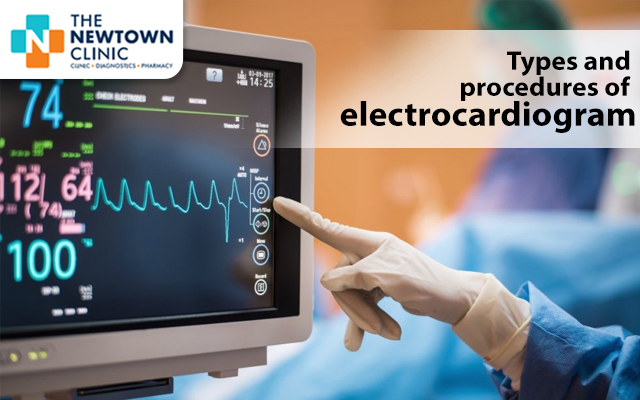An electrocardiogram is a procedure that records the electrical signals in your heart. It is a painless test to check heart problems and monitor your heart health. Below, a heart specialist in Newtown discusses the types and procedures of an electrocardiogram.
The procedure of an electrocardiogram
An electrocardiogram is a painless procedure. The test will be done in the following steps.
- Your doctor will ask you to change your dress, and the technician will attach ten electrodes with a gel to your legs, chest, and arms. These electrodes will be attached to wires, which in turn, are attached to an EKG machine.
- You will be asked to lie down during the procedure on the table and breathe normally.
- The machine will record the electrical activity of your heart, says a cardiologist, and the results will be displayed on a graph.
- Once the test gets completed, the technician will remove the electrodes from your body. The entire procedure lasts for ten minutes.
Types of electrocardiogram
Below, a top cardiologist in Newtown discusses the different types of the electrocardiogram.
· Holter monitor
According to the best cardiologists from the best heart clinic in Newtown, a holter monitor records the heart’s activity for twenty-four to forty-eight hours or two weeks. Keeping a diary will help you to keep track of your symptoms and enable your doctor to identify the causes behind them.
· Event recorder
You might not always experience the symptoms of your heart disease. Hence, your doctor might suggest you keep an event recorder. It is like a holter monitor, but it records the electrical activity of your heart just when you experience your symptoms. Some event recorders get automatically activated when they detect an arrhythmia. Other event recorders might require you to push a button when you have symptoms. You can directly send the information to your cardiologist over the phone.
· Stress test
Some symptoms of heart disease only reveal themselves while you exercise. During a stress test, you will have a continuous EKG. This test is usually done on a stationary bicycle or a treadmill.
· Loop recorder
A loop recorder is a device that the doctor implants in your body, under the skin of the chest, through minor surgery. It functions in a way that allows for constant remote monitoring of the electrical signals of the heart. It checks for irregularities that can cause palpitations or fainting.
We have discussed the types and procedures of an electrocardiogram. You can reach out to a cardiologist to know which procedure will be the most suitable for you.

